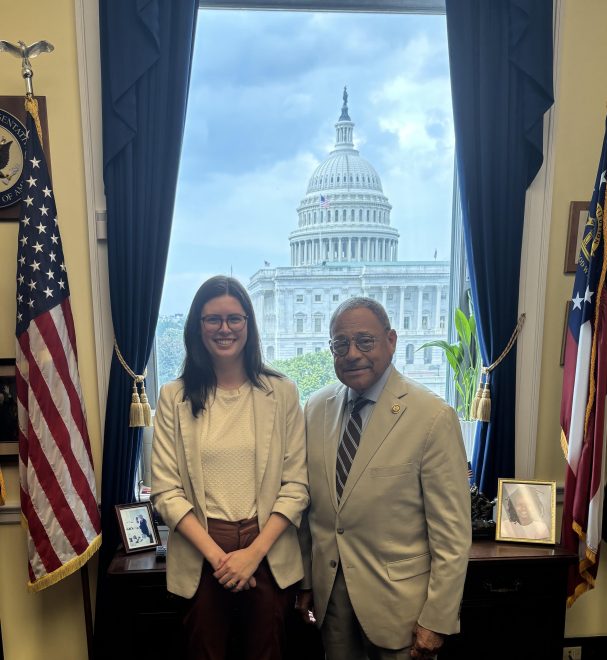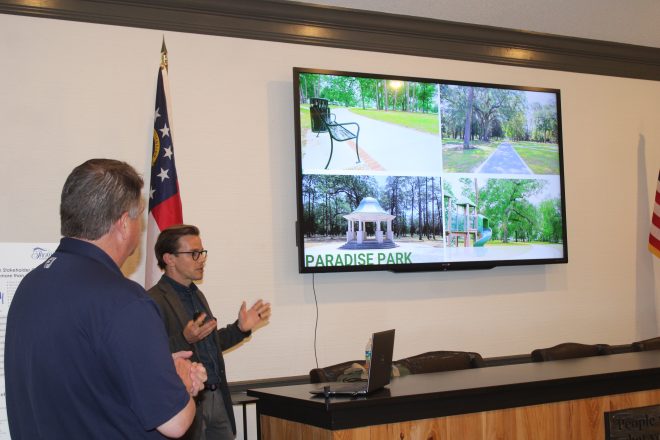Dalton firefighter is first woman smoke diver in years
Published 11:19 am Friday, March 24, 2017

- Dalton firefighters Gabe Shupe and Melissa Russell recently completed the Georgia Smoke Diver program. Russell is the first woman to complete the program since 1994.
DALTON, Ga. — Melissa Russell no longer drives a fire engine for the Dalton Fire Department and hasn’t climbed on a ladder to help fight a fire in a number of years.
But while she may have more regular hours as Chief Bruce Satterfield’s administrative assistant, with what she calls a “simpler lifestyle” with her husband as a battalion chief, she still prides herself on being a firefighter first and foremost.
Russell still goes through training exercises to maintain her certificate and still serves on call should an emergency situation arise. She still takes her training seriously and remains committed to being at the top of her profession.
It was that motivation that led her to recently become the first woman to complete the Georgia Smoke Diver program, an elite training program that also offers leadership studies, since 1994.
“I had to develop an emotional and mental toughness in order to complete this,” Russell said of going through the six-day, 60-hour regimen. “I think if anyone can get through that, you are going to inspire others to do it. Through emotional and mental strength, you might be able to inspire others.” Russell was designated a class leader in the program.
Russell has made a habit of blazing trails as she was the first female firefighter hired by the city fire department in 2006.
“When we met her, she was a fitness instructor and that was where we found her,” said Satterfield, who graduated from the Smoke Diver program in the 1980s. “It doesn’t surprise me that she was able to complete the program because she is very competitive. I really think they made her class leader and that may have put a different perspective for her. On the graduation day, students were all very complimentary of her and very impressed.”
Russell said completing the Smoke Diver program was her biggest professional challenge. It was her third attempt to complete it, first trying out while she was an active firefighter in 2006. And even though she now sits at a desk each day, Satterfield said Russell doesn’t have a passive demeanor.
“That is just not her,” he said. “Even when she came upstairs, she still does all of the training that everyone else goes through. She has continued to do those. Absolutely, that is one more thing that sticks out. She is not on that truck every day, but she is just a very competitive person. She worked hard and trained forever.”
Most of the time, Russell trained with second-year firefighter Gabe Shupe, who also completed the program. She said his help kept her going during the program that included 16 parts of an obstacle course that had to be overcome and a full physical training program.
“If they know you are coming from a department together, they will pair you up,” Russell said. “It is individualized instruction, but they want to have people to help you get through. We complemented each other well.”
Shupe said it is a credit to Russell that she even attempted the program and more impressive that she passed. Females are held to the same physical requirements as their male counterparts.
“There have been several females to come through, but most of them can’t handle the physical nature of the program,” Satterfield said. “There are no special considerations, and typically upper-body strength is something they can’t overcome.”
Indeed, as part of the obstacle course, students must carry two fully-coiled, 50-pound bundles of hose.
“A couple of the obstacles were extremely challenging for me. Everyone has their strengths and weaknesses,” Russell said. “Coming into that class, they already expect you to be fairly knowledgeable and know what you are doing. This is something to build on that. They are taking that and making you a better firefighter both physically and keeping your head mentally in pressure situations. It is just as much a mental struggle as it was a physical challenge.”
Shupe agrees the mental challenges were the toughest.
The two are the 24th and 25th members of the Dalton fire department to go through the program since its inception in 1978. Russell said having that kind of experience around her and Shupe made a huge difference in helping both of them make it through the challenges of the program.
“I want to say I owe my success to all of the Dalton firefighters for helping us to train to be able to do this course,” she said. “We are surrounded by great and talented people and great supervisors, and that was why I was ready, because of our guys. They were here training us the entire time.”





